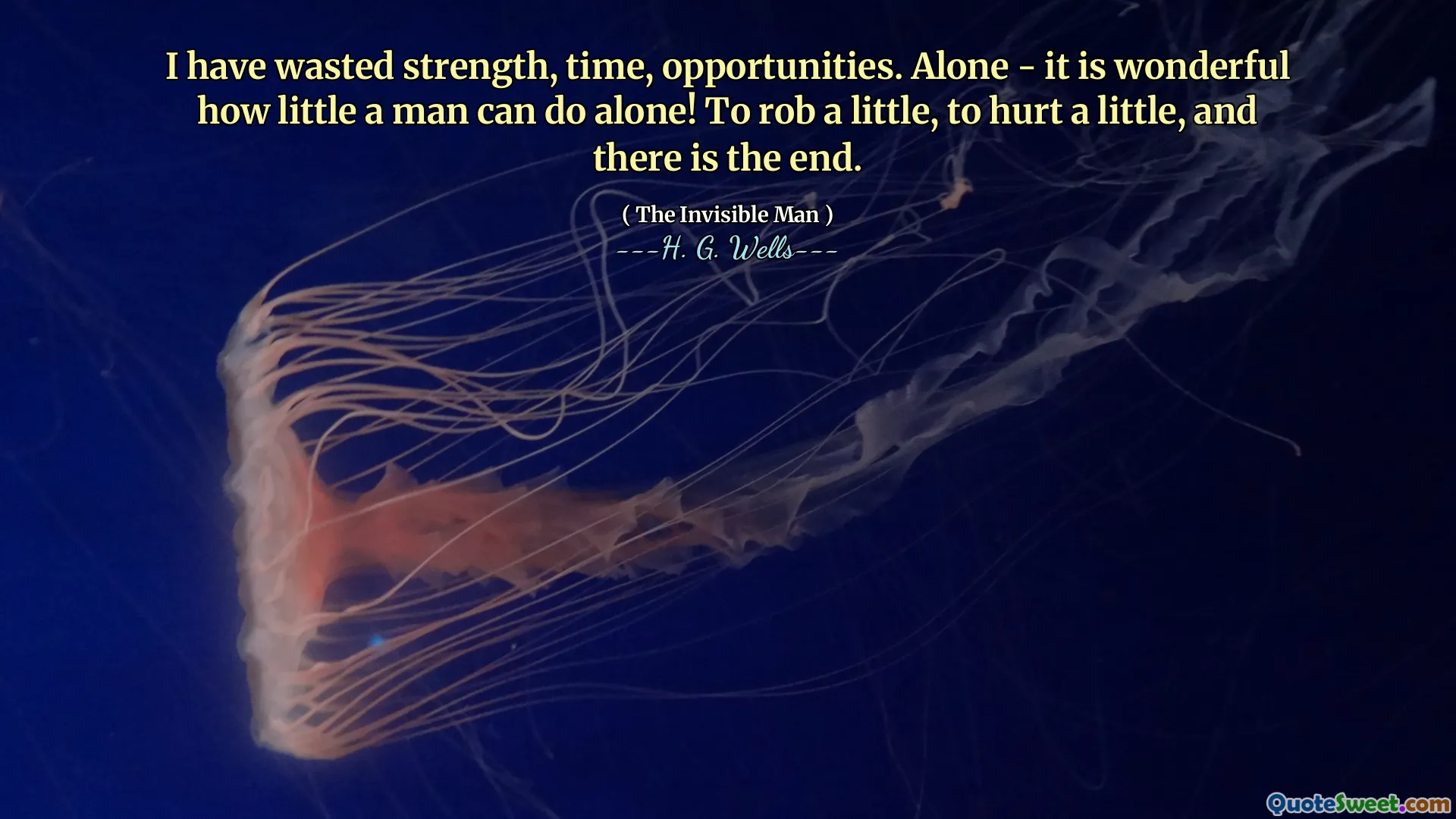
I have wasted strength, time, opportunities. Alone - it is wonderful how little a man can do alone! To rob a little, to hurt a little, and there is the end.
In H.G. Wells' "The Invisible Man," the protagonist reflects on the futility of his solitary existence. He expresses a sense of regret over the time, strength, and opportunities he has squandered throughout his life. This introspection highlights the limitations of an individual acting alone, emphasizing that without collaboration or connection, one's impact is minimal.
The statement captures a profound truth about human existence; it illustrates the desperate nature of isolation and the minuscule achievements that come from working in solitude. Instead of accomplishing anything meaningful, the protagonist acknowledges that his actions have only resulted in minor thefts and harm, leading to a bleak culmination of his efforts.











